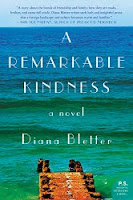The 100-year-old titan of American letters recalls his very happy publishing career, in the new ‘Sailor and Fiddler’
By Adam Kirsch for Tablet Magazine
Looking back on it, the triumph of American Jewish literature in the 20th century seems like something foreordained. Take a people, Eastern European Jewry, that had always cherished literacy and give them a freedom they had never been granted before, and the result is a creative explosion—Death of a Salesman, The Adventures of Augie March, Portnoy’s Complaint, The Catcher in the Rye (not to mention the Broadway musical, Tin Pan Alley, and Hollywood). Why is it, then, that the American Jewish writers who were most successful, whom we now regard as classics, did not make success their theme? On the contrary, they generally wrote about failure, alienation, neurosis, and guilt—to the point that these subjects came to seem stereotypically Jewish in American culture. If the American Jewish story is, on balance, a very happy one, why are our books so miserable? Where are the well-adjusted Jewish writers?
Continue reading.
For more on Jewish books, check out our
 page.
page.



